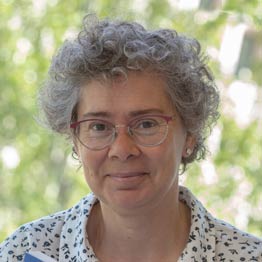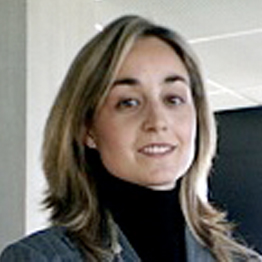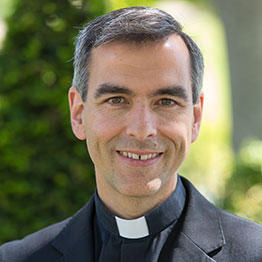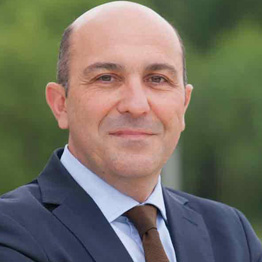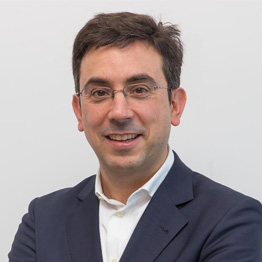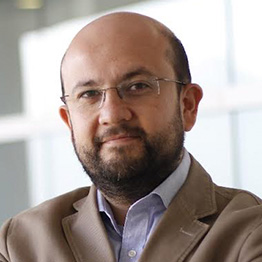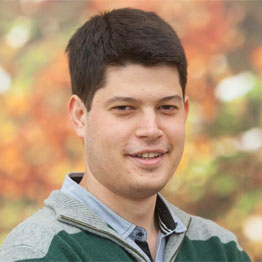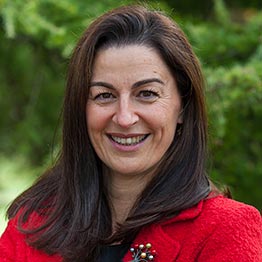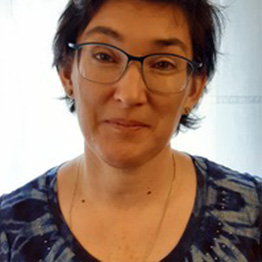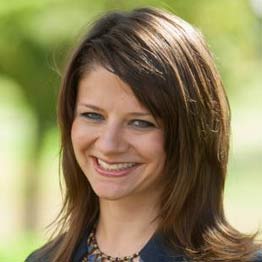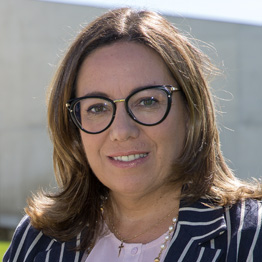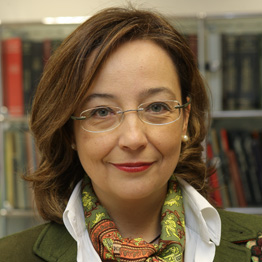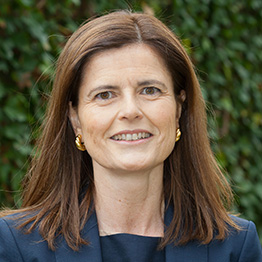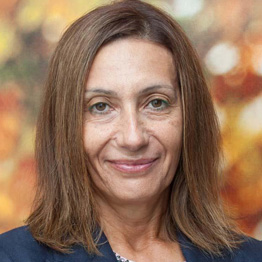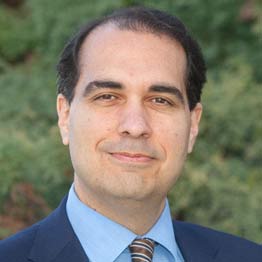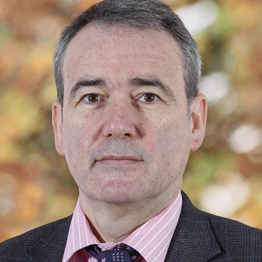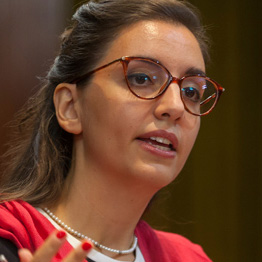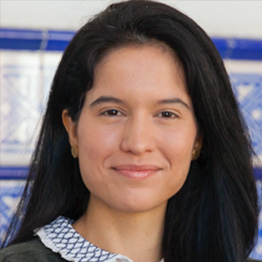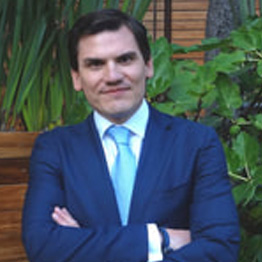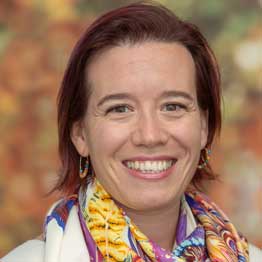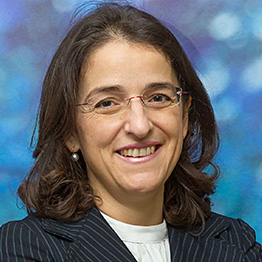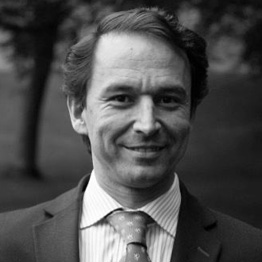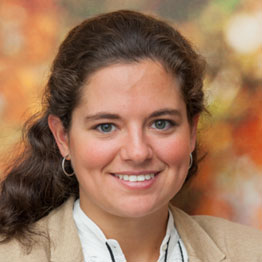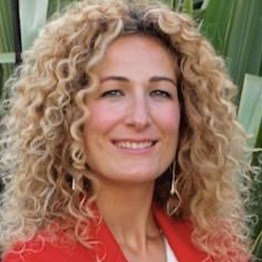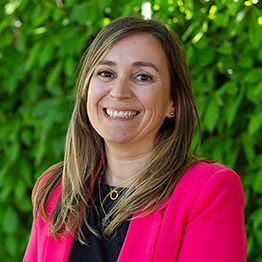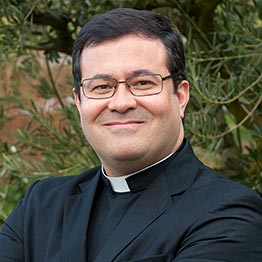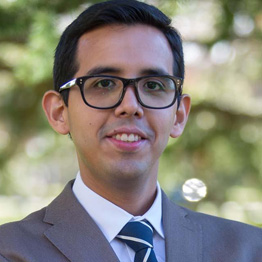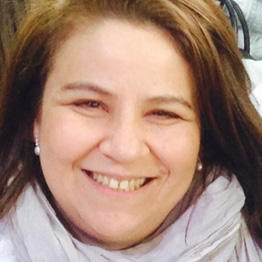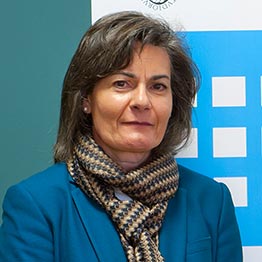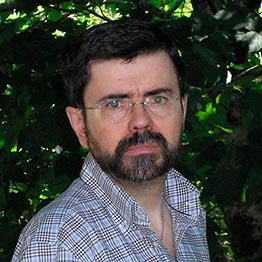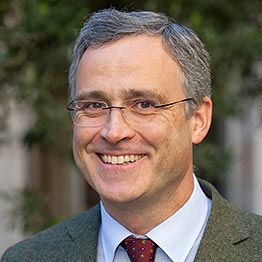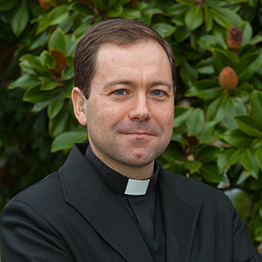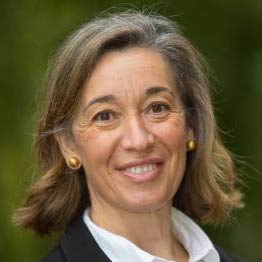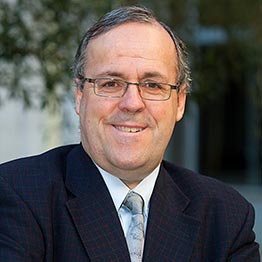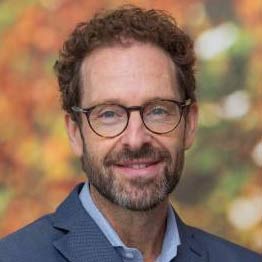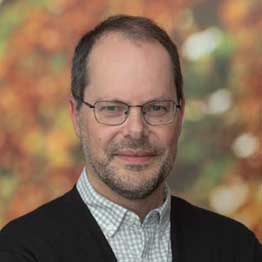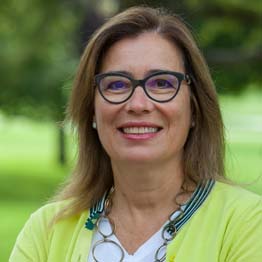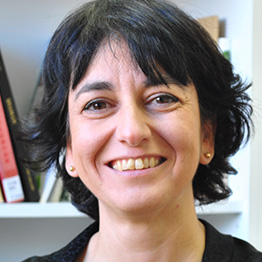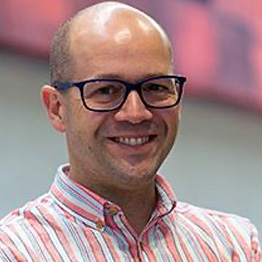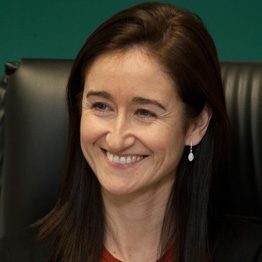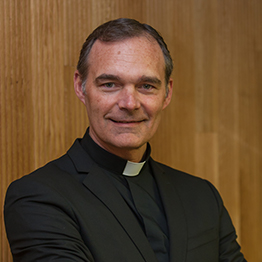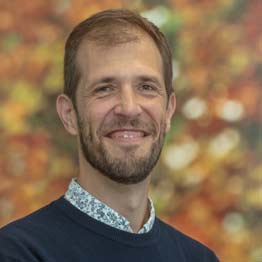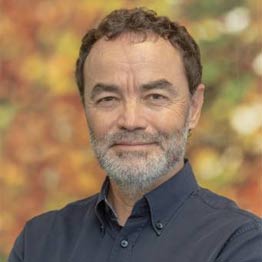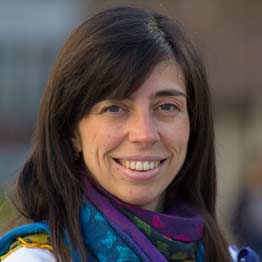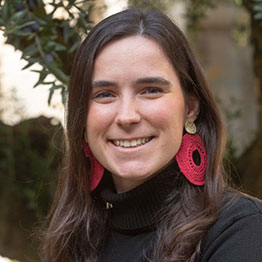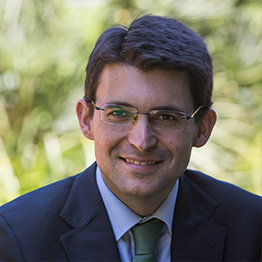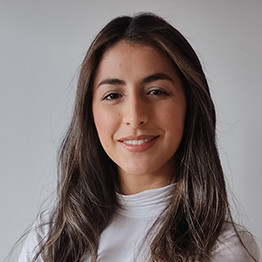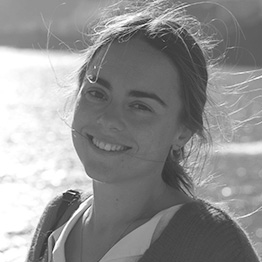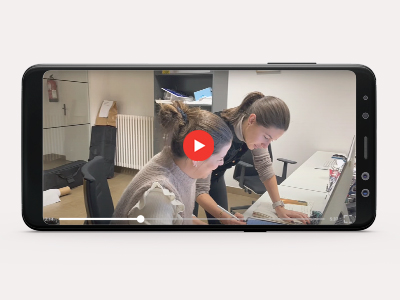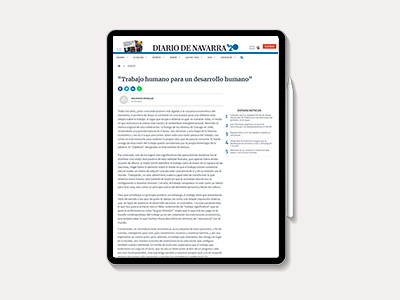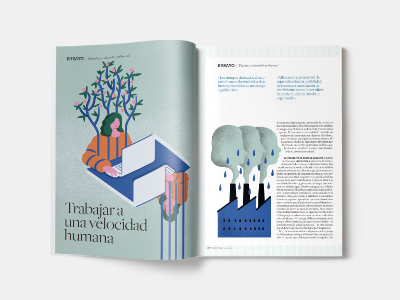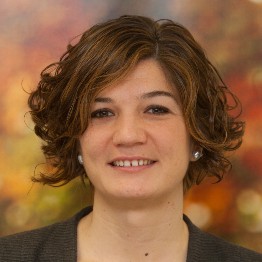work, care and development. research. Strategy 2025. University of Navarra
INTERNATIONAL CONFERENCE
The Roads to Development:
Work, Markets and Institutions
October, 20-21, 2025
goal of this strategic line
promote the research and the dialogue multidisciplinary on the role of work in shaping personality, culture and society.
To this end, the line includes projects oriented to:
![]()
To deepen the meaning of work in the contemporary world.
![]()
Explore the possibilities of work as a vector of development sustainable.
![]()
Examine the tensions between organizational structure and vocational dimension of certain professions.
![]()
Studying ways of dealing with workThe company's activities, relaxation and leisure in different cultural and social contexts.
![]()
Analyze the human and social implications of the transformation of work in the digital era.
The meaning of work
in recent theology
The project will study how to contribute from recent Christian theology (Catholic, Protestant and Orthodox) to the understanding of work in the current context. The interdisciplinary study seeks to pay attention to new perspectives from which to think about work, so that the future of work is inspired by categories such as creativity, relationality, service, solidarity and virtue.

Theological works that have appeared since the second half of the 20th century will be studied from a theological perspective that is attentive to the fundamental dimensions of the human being.
 A research multidisciplinary will be addressed to allow for to propose a review of the social model and development and to deploy principles of action capable of influencing the socio-economic system.
A research multidisciplinary will be addressed to allow for to propose a review of the social model and development and to deploy principles of action capable of influencing the socio-economic system.
 It will explore the contemporary implications of the message of the sanctification of the workwho figures in the founding nucleus of Opus Dei, whose centenary is to be celebrated in 2028.
It will explore the contemporary implications of the message of the sanctification of the workwho figures in the founding nucleus of Opus Dei, whose centenary is to be celebrated in 2028.
The work as a human vector
of development sustainable
The goal of this project is to show why a concept of work that takes into account its multiple dimensions of value - not only its economic value - is central to advancing from a linear model of development to a model of development sustainable.
The hypothesis is threefold:

The decentwork is part of the development of people and societies not only as source of economic resources but also as source of identity staff and social integration; even if it involves effort, it provides a good to the person and to the society of which it is part, not only for its commercial value but also for the moral and relational values it can incorporate.
 Take into consideration the different dimensions of value involved in the work provides a ethical criterion from which to resize the productive and financial activity in the life of the organizations, generating a model of sustainable growthpotentially scalable.
Take into consideration the different dimensions of value involved in the work provides a ethical criterion from which to resize the productive and financial activity in the life of the organizations, generating a model of sustainable growthpotentially scalable.
 The viability of this class of organizations in an competitive environment requires appropriate legal frameworks that ensure a model partnership reciprocal between state, market and civil society..
The viability of this class of organizations in an competitive environment requires appropriate legal frameworks that ensure a model partnership reciprocal between state, market and civil society..
Ana Marta Gonzalez
School of humanities and social sciences.
Philosophy morale
Immaculate Bavaria
Law.
Labor Law
Gregorio Guitián
Theology.
Social Doctrine of the Church.
work significant
Ignacio Ferrero
Economics.
Business ethics.
Organizations with purpose
Antonio Moreno
Economics.
Macroeconomics.
Triple subsidiarity
Javier Pinto
University of the Andes. Business ethics.
Sergio Clavero
School of humanities and social sciences.
Sociology.
Value of work.
Carolina Montoro
School of humanities and social sciences.
Demographics.
workdemography, care, migrations.
Elena San Jurjo
Economic.
development.
work., care, migrations.
Ania Dulska
ICS.
Organization of work.
Mª Teresa Gil
Law.
International Law.
What happens when there is no work
Mª Amparo Salvador
Law.
Administrative Law.
work social law in modern states
Ana Sánchez Ostiz
School of Architecture.
training for sustainability in architecture; working from home.
Begoña Urien
Education and Psychology.
Employee well-being and sustainability of organizations.
Ladislao Campo
Law.
Administrative Law.
Efficient companies, regulated self-regulation, partnership public-private .
Eduardo Ayesa
Technology Center Ceit.
training for sustainability in professional environments; the management of water
Marta Rocchi
Dublin City University, DCU Business School.
Business Ethics.
workTechnology.
Carolina Villegas
Postdoctoral research associate at the Notre Dame - Technology Ethics Center (ND-TEC).
Technology, IA, Care
Germán Scalzo
Panamerican University.
Business ethics.
work significant
Raquel Cascales
School of Architecture. Aesthetics. Theory of design. Care
Vocational professions
and organization of the work
The aim of this project is to analyze the tensions between the vocational demands of certain professions and the working and organizational conditions in which they are exercised as a possible structural cause of burnout, in order to propose alternative organizational models that, by making better use of talent, favor the development of the professionals involved. In particular, we will focus on healthcare professionals, Education, research and journalism.
The hypothesis is that the greater susceptibility to burnout among vocational and creative professions is due to the collision of criteria regarding the way of approaching work, when this responds to an internal motivation, and when it responds to external stimuli, generally economic. Hence, without being reduced to this, such tensions are exacerbated in contexts of job insecurity.
WORDS core topic: professional vocation, organizations, acceleration, training permanent, burnout, precariousness.
Ana Marta Gonzalez
Philosophy morality and social theory
Sergio Clavero
School of humanities and social sciences
Begoña Urien
Education and Psychology.
Cognitive dissonance; organizations and burnout.
Sonia Lara
Fac. Education and Psychology.
Educational Organizations
Juan Antonio Diaz
Medicine.
Medical identity and professionalism
Miriam Pereira
Nursing.
The environment of the nursing professional internship
Cristina Garcia
UPNA, Public University of Navarra.
Nursing.
Humanize the work.
Immaculate Bavaria
Law.
Labor Law
Isabel Iribarren
Library Services.
research and publishing platforms.
Helio Luciano
Theology.
Understanding of the subjective dimension of work in the relationship with God, associated with concrete problems.
Jorge Luis Villacis
Education and psychology.
Germán Scalzo
Panamerican University.
Business ethics.
work significant
Relaxation, work
and leisure
This project aims to analyze the interrelation between rest, work and leisure, as three constitutive dimensions of human life and, in the light of the contributions of social and cultural history, to explore the different ways in which they are articulated in our times: both their manifestation in lifestyles and their impact on development staff and culture.
Specifically, the project pursues:

To deepen the meaning of work, rest and leisure.

Analyze the forms that the articulation of work rest and leisure has taken in the past, and the forms it takes today, paying special attention to the way we distribute our leisure time.

Reviewing the place of leisure in educational approaches.

Analyze the supply side of the entertainment industry. In particular, the audiovisual entertainment industry

To examine the ways in which the art world tries to escape the logic of the market.

Examine the ways in which the experience of nature can liberate from consumerist attitudes that erode it and reveal alternative modes of leisure.
WORDS core topic: work economic, work formative, leisure, idleness, art, spirit, spirituality, festivity, performance, self-exploitation, "leisure industry", sport, work and leisure spaces, psychic health, retirement, homo faber, homo ludens.
Ana Marta Gonzalez
Philosophy moral and social theory.
Claudia Carbonell
Philosophy old.
Lourdes Flamarique
School of humanities and social sciences.
Philosophy and contemporary culture.
José Torres
School of humanities and social sciences.
Philology Greek.
Skhole, paideia.
Alvaro Sánchez Ostiz
School of humanities and social sciences.
Philology Latin.
The meaning of otium
Diego Pérez Góndar
Theology.
The work in the Hebrew world.
Sergio Clavero
School of humanities and social sciences.
Sociology.
Value of work.
Julia Pavón
School of humanities and social sciences.
Medieval history.
Leisure in the age average.
Miguel Zugasti
School of humanities and social sciences.
Literature.
Leisure and festivities in the Golden Century.
Albert Recasens
ICS.
Aesthetics and Education musical in the 18th century.
Immaculate Bavaria
Law.
Working conditions of sportsmen and artists.
Gabriel Pérez-Barreiro
Curator and art historian. ICS
Ana Costa
Education and psychology.
Education musical.
Nieves Acedo
Museum of the University of Navarra.
Educating for leisure, art.
Enrique Guerrero
School Communication.
Audiovisual leisure.
Patricia Diego
School Communication.
Audiovisual leisure.
Pablo Marti
Theology.
Spirituality.
Raul Bermejo
School Science.
Educating for leisure, nature: Landscapes program.
Jordi Puig
School Science.
Educating for leisure, nature.
Ana Villarroya
School Science.
Educating for leisure, nature: forests and well-being.
Blanca Gallostra
staff researcher at training
School of Philosophy y Letras (FFL)
Álvaro Muñoz Valls
staff researcher at training
School of Philosophy y Letras (FFL)

With a humanistic vision of management, we seek to generate knowledge to increase the sense of purpose in organizations.

We are generating an observatory of data longitudinal and multilevel in order to analyze the benefits of purpose, its impact on sustainability and under what conditions it is most effectively implemented.

We have developed tools to diagnose the implementation of purpose in an organization.

We combine quantitative analysis with qualitative dynamics to have a more complete knowledge of the business reality.
Álvaro Lleó
Director from project.
Maria Paula Florez-Jiménez
PhD student at the University of Navarra.
Teresa García de Santos
PhD student at the University of Navarra.
Chair IDEA of "New longevities".
The University and IDEA, business specialized in the promotion and management of healthcare centers and services, have launched the Chair IDEA of New Longevities, with the goal to respond to the major challenges of demographic aging.
Researchers from the line lead a project on the framework of the Chair Volkswagen.
PI: Dr. Anna Dulska
Description: The research has a double goal. a) to identify those factors that make the people who make up the production workforce go to work space, focusing on the staff, social and cultural meaning of work, as projected in the organizational culture of business, and as perceived by employees, differentiating them from those factors that encourage absenteeism. b) to design a questionnaire applicable to selection process of new hires that ensures high rates of presenteeism."
Forum business and Humanism for interdisciplinary reflection on the transformations of the world and of work in the digital era.
We are immersed in the fourth industrial revolution: 4.0. Advanced technology is the protagonist: robotics, digitalization, AI, 3D printing, industrial biotechnology, sustainable materials and spaces, nanotechnology, etc. In each industrial revolution, new ways of work appear , which end up influencing how man conceives himself, his relationship with others and his experience of the world.

Through the organization of interdisciplinary seminars, this forum aims to study how the new forms of work that emerge in the digital era change our way of experiencing time, the way we perceive reality and sometimes its meaning.
![]() IMMACULATE BAVARIA.
IMMACULATE BAVARIA.
The employment rate of people with disabilities in the European Union: common and differentiated aspects (2023)
Keys in the employment of people with intellectual disabilities: triple perspective from law, psychology and medicine (Tirant lo Blanch), pp. 305-373.
The provision of care in the social Economics : an approach to the political framework (2023)
CIRIEC - Spain. Revista jurídica de Economics social y cooperativa, Núm. 43, pp. 97-129
Geolocation of workers during the performance of their work activity (2022)
Significado de las nuevas tecnologías en el porvenir de las relaciones laborales (Thomson Reuters Aranzadi), pp. 121-147.
"Commitment to social responsibility and sustainability as a means of labor inclusion of people with disabilities."
in La discapacidad intelectual en el ámbito laboral. Towards universal accessibility, Laborum, 2023.
"Las rentas mínimas en el derecho comparado: una aproximación",
in El ingreso mínimo vital: una perspectiva global: regulación estatal, derecho comparado y conexión con rentas mínimas autonómicas, BOE, 2021.
This publication is part of "Profesiones vocacionales y organización del work":
"La ordenación del tiempo de work de los deportistas profesionales y de las personas artistas",
in La reordenación del tiempo de work, BOE, 2022.
![]() SERGIO CLAVERO.
SERGIO CLAVERO.
The Idea of Merit: Delineation and Challenges (2023)
Philosophia (United States), Vol. 51, No. 3, pp. 1175-1191
Overqualification as misrecognition (2021)
Humanities and Social Sciences Communications, Vol. 8, No. 1
![]() ANA MARTA GONZALEZ.
ANA MARTA GONZALEZ.
work, meaning and development: inflections of modern culture (2023)
Dykinson
![]() ANA MARTA GONZÁLEZ & GERMÁN SCALZO.
ANA MARTA GONZÁLEZ & GERMÁN SCALZO.
Circular subsidiarity: Humanizing work through relational goods (2024)
Business and Society Review
![]() ANA MARTA GONZÁLEZ & GREGORIO GUITIÁN.
ANA MARTA GONZÁLEZ & GREGORIO GUITIÁN.
Theology of work: New perspectives (2024)
Scripta theologica: journal of the School of Theology of the University of Navarra, Vol. 54, Fasc. 3, pp. 757-787.
![]() GREGORIO GUITIÁN.
GREGORIO GUITIÁN.
Offshore Outsourcing from a Catholic Social Teaching Perspective (2023)
Journal of Business Ethics, Vol. 185, No. 3, pp. 595-609
![]() CAROLINA MONTORO.
CAROLINA MONTORO.
Geodemographic responses to changes in the socioeconomic model : Overview (2020)
Population and territory: Spain after the 2008 crisis (Comares), pp. 1-12.
![]() MARTA ROCCHI.
MARTA ROCCHI.
'The Virtues of COVID-19 Pandemic: How Working from Home Can Make Us the Best (or the Worst) Version of Ourselves' (2022).
Rocchi, M.; Bernacchio, C., Business and Society Review, 127(3), 685-700.
Open Access
'Specifically Human: Human Work and Care in the Age of Machines' (2022).
Bertolaso, M.; Rocchi, M. Business Ethics, the Environment & Responsibility, 31(3), 888-898 .
![]() GERMAN SCALZO.
GERMAN SCALZO.
How much (more) is fair to pay? The ethics of merit in assessing poverty wages in organizations (2024)
International Journal of Ethics and Systems (2024). DOI.
Whose work? Which markets? Rethinking work and markets in light of virtue ethics (2023)
Business Ethics: the Environment & Responsibility, 32(S1), 4-14 (2023)). DOI.
The Narrative Dimension of Productive Work: Craftsmanship and Collegiality in the Quest for Excellence in Modern Productivity (2022)
Philosophy of Management (2022). DOI.
Autonomy and Subordination: Virtuous Work in Light of Aristotelian Practical Knowledge in Organizational Theory (2021)
Business & Professional Ethics Journal, 40(1), pp. 47-80 (2021), DOI.
Virtuous work and Organizational Culture: How Aristotelian Practical Wisdom Can Humanize Business (2021)
in M. T. Lepeley (ed.) Human Centered Organizational Culture, Routledge's Human Centered Management Book Series, Routledge, (2021), ISBN 9780367551117.
![]() BEGOÑA URIÉN.
BEGOÑA URIÉN.
Do you prefer logging in? The relevance of the experience of telework for well-being (2024)
Employee Relations, Vol. 46, No. 3, pp. 641-656
The role of employees in the transition to Industry 5.0 (2023)
Economics Industrial, No. 428, pp. 33-40
Teleworkability, Preferences for Telework, and Well-Being: A Systematic Review (2023).
Sustainability (Switzerland), Vol. 15, No. 13
![]() JORGE LUIS VILLACÍS.
JORGE LUIS VILLACÍS.
Character strengths, moral motivation and vocational identity in adolescents and young adults: a scoping review (2023).
Current Psychology, Vol. 42, No. 27, pp. 23448-23463
08 | 11 | 2023
"For many people, the work has ceased to be the privileged place from which to articulate their development staff and social."
02 | 10 | 2023
Interdisciplinary experts support self-care, meaningful aging and intergenerational dialogue in the face of longevity challenge
ImagenIsabel Solana
25 | 09 | 2023
Longevity as a social opportunity, topic of a workshop of the University of Navarra and IDEA Foundation.
19 | 09 | 2023
The University hosts a photographic exhibition that invites to change the way we look at the vulnerability of older people
ImagenIsabel Solana
02 | 05 | 2023
The University creates the Chair IDEA of New Longevities
Tuesday, February 25, 2025.
seminar Philosophy (Ismael Sánchez-Bella Building, 2nd floor).
![]()
13:00 Chapter to exhibit: "Ben Sira's Instruction About God's Works", Schmidt, A. Jordan, from book Wisdom, Cosmos, and Cultus in the Book of Sirach, Walter de Gruyter GmbH, 2019, Vol.42, p.81-139. Exposes: Don Diego Gondar.
Tuesday, March 4, 2025.
seminar Philosophy (Ismael Sánchez-Bella Building, 2nd floor).
![]()
13:00 Book on display: The Last Human Job: The Work of Connecting in a Disconnected World. Princeton University Press. Pugh, A. J. (2024). He will also comment on article "Constructing what counts as human at work: Enigma, emotion, and error in connective labor " by the same author published in American Behavioral Scientist in 2023. Presenter: Sonia Lara.
Tuesday, March 18, 2025.
seminar Philosophy (Ismael Sánchez-Bella Building, 2nd floor).
![]()
13:00 Book to be presented: Developing Person-Centred Cultures in Healthcare Education and Practice: An Essential Guide. John Wiley & Sons. McCormack, B. (Ed.) (2024). Exhibits: Miriam Pereira.
Tuesday, June 10, 2025.
Pending confirmation
![]()
13:00 Book on display: Is Your Work Worth It: How to Think About Meaningful Work. PublicAffairs. Michaelson, C. W., & Tosti-Kharas, J. (2024). Exhibits: Marta Rocchi.
Transversal bibliographic seminars
![]()
2024
Tuesday, November 12th. 13:00 h.
D. Gregorio Guitián: Book to be presented: Theology of Work. By Gregorio Guitián (to be published soon by Routledge, already in print).
Tuesday, November 19. 13:00 h.
Sergio Clavero: Book to exhibit: Der Arbeitende Souverän: Eine Normative Theorie der Arbeit. By Alex Honneth (Suhrkamp Verlag, 2023).
Tuesday, December 10th. 13:00 h.
D. Pablo Martí: Contemplative life: praise of inactivity. By Byung-Chul Han (Taurus, 2023).
"The work as a human vector of sustainable development "
![]()
2022
Thursday, November 3rd. 9:30 h.
Sergio Clavero: "When is work valuable? Outline of a typology".
Thursday, November 17. 9:30 h.
Marta Rocchi: "Opacity and moral agency: how AI forces us to think about how we make decisions".
Thursday 24 November. 16:15 h.
Carolina Villegas, "Business ethics and ethics of care in Artificial Intelligence (AI)".
Thursday, December 15. 16:15 h.
Germán Scalzo. "Whose work, which markets? Rethinking work and markets in light of virtue ethics".
2023
Friday 10 February, 9:30 - 10.45 h. classroom 30, Central Ed.
Ladislao Campo. "Efficientmanagement of public policies of general interest: the public-private partnership "
Thursday, March 2, 9:30 - 10.45 a.m. classroom 14 Friends Ed.
Antonio Moreno. "Strategies to create more quality jobs and expand the class average : A public policy approach "
Thursday, May 4, 9.30 a.m. - 10.45 a.m. classroom ICS Siemens-Gamesa
Ana Sánchez Ostiz: "Working from home".
"Vocational professions and organization of work"
![]()
2023
Friday, January 13, 9.30 - 10.45 h. classroom 30, Central ed.
Juan Antonio Díaz. "Medical identity and professionalism".
Wednesday, February 8 at 9.30 - 10.45 h. classroom 30, Central ed.
Cristina García Vivar (Nursing, UPNA): "El lado humano del work " "The human side of work".
Wednesday, March 8 at 9.30 - 10.45h. classroom ICS Siemens- Gamesa
Fernando López Pan: "Journalism. A profession in crisis".
Tuesday, March 28, h 11.00-12.30 classroom 30, Central ed.
development Isabel Iribarren: "Contribution of scientific publications to the Sustainable Development Goals (SDGs)".
Wednesday, May 10 at 9.30 - 10.45 h. classroom ICS Siemens-Gamesa
Miriam Pereira "The impact of the nursing environment on the development of its professional internship , according to its specificity".
Wednesday, November 15 at 12.30-14.00 h, classroom ICS Siemens-Gamesa
Sonia Lara Ros "The profession professor: challenges and opportunities".
Wednesday, November 22 at 12.30-14.00 h, classroom ICS Siemens-Gamesa
Inma Baviera "Approach to labor issues of professional caregivers".
Wednesday, December 13 at 12.30-14.00 h, classroom ICS Siemens-Gamesa
Jorge Luis Villacís Nieto"Is my profession vocational?"
"Rest, work and leisure."
![]()
2024
Friday, October 18. seminar from Philosophy. Ismael Sánchez-Bella Bldg.
10:00 Book to exhibit: Time of Care: another way of being in the world. By Victoria Camps (Arpa, 2021). speaker By: Elena Álvarez
Wednesday, May 15, classroom M1. Amigos Building. "Free time: from what and for what?"
9:30 Welcome and general introduction by Ana Marta González.
9:45 discussion paper by Sergio Clavero: ""The idea of 'free time' in an accelerated society". With commentary by Claudia Carbonell.
11:00 discussion paper by Jordi Puig: "Learning to see and look at what is valuable in nature". With commentary by Raúl Bermejo.
12:45 discussion paper by Lourdes Flamarique: "The cultural and artistic industry today: between consumption and creative innovation". With commentary by Dailey Fernández.
Thursday, May 16, classroom M1. Amigos Building. "Organization of work and social policies".
11:00 discussion paper by Álvaro Lleó: "Generating work environments with a sense of purpose". With commentary by Begoña Urién.
12:30 discussion paper by Antonio Moreno: "Creating good jobs: good and bad policies". With commentary by Ladislao Campo.
16:00 lecture by Dani Rodrik from Harvard (within the Chair IDEA): ""An Industrial Policy for Good Jobs". Discussion with the audience.
2023
Thursday, February 16, classroom 2 Museum h 10.00 - 11.15 a.m.
José Torres and Álvaro Sánchez Ostiz: "Schole y otium".
Thursday, March 23, classroom 30 ed. Central h 16.00 - 17.15
Miguel Zugasti and Albert Recasens: "The baroque party: theater and music".
Thursday, April 20, classroom 30 ed. Central h 4.15 - 5.30 pm.
Claudia Carbonell:"Skholē, lifestyles and freedom in Plato. In response to P. Bourdieu's critique."
Thursday, May 25, classroom ICS SG h 16.00 - 17.15
Enrique Guerrero and Patricia Diego: "Audiovisual entertainment: leisure and business".
Thursday, May 18. 16.00 - 17.15 h, classroom 14 Ed. Amigos.
Enrique Guerrero (Communication) and Patricia Diego (Communication): "Audiovisual entertainment: leisure and business".
Thursday, October 19.
Julia Pavón: "The poor opinion of Hernando de Talavera (1428-1507): time and work of kings, nobles and religious".
![]()
![]()
![]()
![]()
ODS
The SDGs, adopted globally, chart the way forward to end poverty, protect the planet and work towards peace and prosperity for people.
The project 'work, care and development' wants to contribute especially to the objectives "Education of quality", "work decent and economic growth", "Peace, justice and strong institutions" and "Partnerships to achieve the goals".




